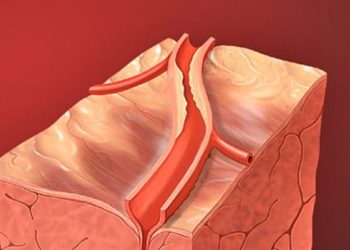Spicy food consumption linked to a reduction in mortality
1. Compared to people consuming spicy foods less than 1 day/week, those consuming it 6-7 days/week had a 14% relative risk reduction in total mortality.
2. Spicy food consumption was also inversely linked to the risk of death due to cancer, ischemic heart disease, and respiratory diseases.
Evidence Rating Level: 2 (Good)
Study Rundown: Spices are in integral component of many cuisines worldwide, and the health benefits with regards to obesity, cardiovascular disease, and cancer are being increasingly studied. Because data linking spicy food consumption with mortality from population studies is lacking, this study aimed to determine the association between consumption of spicy foods and total and cause specific mortality. Data from about 0.5 million Chinese patients with over 3.5 million person years of follow-up were analyzed. Compared to people who ate spicy foods less than 1 day/week, those who consumed spicy foods 1-2 days/week had a 10% relative risk reduction in total mortality, and those who consumed it 3-5 days/week or 6-7 days/week had a 14% relative risk reduction. Similar inverse associations were also noted for deaths due to cancer, ischemic heart disease, and respiratory disease. Finally, this inverse association was noted to be stronger in people who did not consume alcohol than those who did.
This study benefited from its prospective study design and evaluation of a large sample size, nearly 0.5 million patients. However, the questionnaires used by the authors lacked detailed information such as lifestyle behaviors, other dietary habits, and information on how the spicy foods were prepared and cooked. Additionally, while multivariate models adjusted for a number of variables, the possibility of residual confounders remains that may have influenced the results. Finally, people self-reported their frequency of spicy food consumption, and so recall bias was possible. Overall, these results suggest that spicy food consumption is linked with decreased total and certain cause specific mortality, though more thorough analyses are required to endorse correlation.
Click to read the study in the BMJ
Click to read an accompanying editorial in the BMJ
Relevant Reading: The role of herbs and spices in cancer prevention
In-Depth [prospective cohort]: This study looked to determine whether any association existed between the habitual consumption of spicy food and total and cause specific mortality. The study utilized the China Kadoorie Biobank, a prospective cohort study of over 0.5 million adults from 10 geographically diverse areas within China between 2004 and 2008. After excluding people with cancer, heart disease, and stroke at baseline, 487,375 people were studied aged 30-79 years. People were administered questionnaires and followed prospectively. With a median follow-up of 7.2 years and 3,500,004 total person years, the absolute mortality rates were 6.1, 4.4, 4.3, and 5.8 deaths/1000 person years for people who ate spicy foods less than 1 day/week, 1-2, 3-5, and 6-7 days/week, respectively. In the whole cohort, compared to people who ate spicy foods less than 1 day/week, the adjusted hazard ratios for death were 0.90 (CI95% 0.84-0.96), 0.86 (CI95% 0.80-0.92), and 0.86 (CI95% 0.82-0.90) for people who ate spicy foods 1-2, 3-5, and 6-7 days/week, respectively. In multivariate analyses, spicy food consumption was also inversely linked to the risks of death due to cancer, ischemic heart disease, and respiratory diseases. This inverse association was stronger among people who did not consume alcohol than those who did (p=0.033 for interaction). Finally, while the slight differences in mortality linked to spicy food consumption between men and women were not statistically significant.
Image: CC/Wiki
©2015 2 Minute Medicine, Inc. All rights reserved. No works may be reproduced without expressed written consent from 2 Minute Medicine, Inc. Inquire about licensing here. No article should be construed as medical advice and is not intended as such by the authors or by 2 Minute Medicine, Inc.







